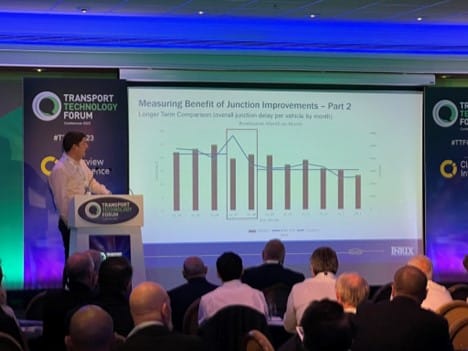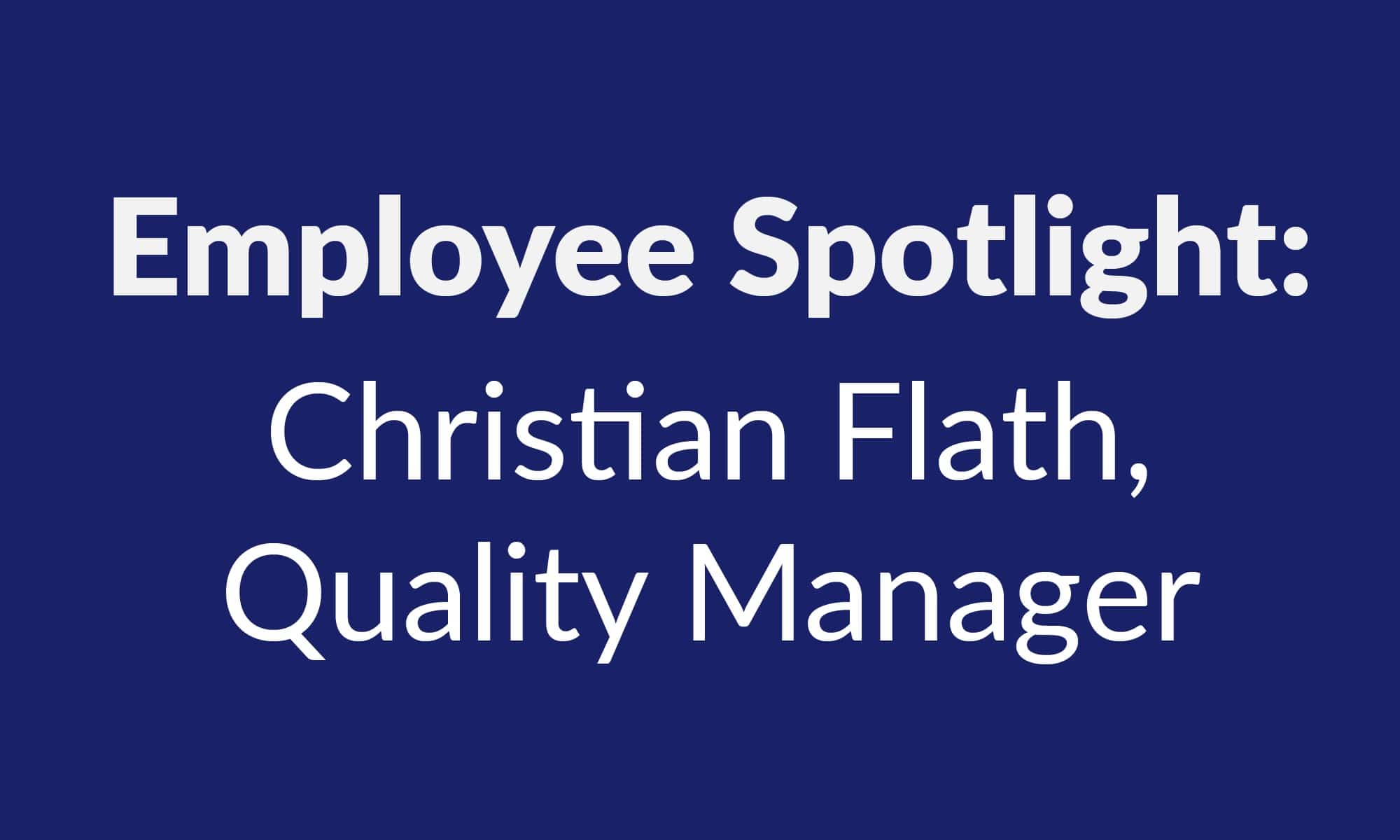Study from INRIX and the Centre for Economics and Business Research Predicts Annual Cost of Congestion in the UK will Rise 63 Percent by 2030 to £21 Billion
LONDON, UK – 14th October 2014: INRIX, a leading international provider of real-time traffic information, transportation analytics, and connected driver services, today revealed results from its study with the Centre for Economics and Business Research (Cebr) into the future economic costs of gridlock in Europe and the US. The study found that between 2013 and 2030, the total cumulative cost of congestion to the UK1 economy is estimated to be a staggering £307 billion, with the annual cost of congestion set to rise by 63 percent to £21.4 billion over the same period, mainly as a result of population growth and increasing GDP per capita as the UK economy continues to strengthen.
“This study is a warning of the worsening impact of gridlock on the British economy and on household budgets,” said Matt Simmons, European director, INRIX. “We now know that congestion will continue to have serious consequences for national and city economies, businesses, and citizens in the years to come. If we think this problem is bad now, we are in for a terrible shock come 2030.”
The Future Impact of Congestion in the UK
In the UK last year, almost 70 percent of the workforce commuted to work by car during peak times, with the average British driver spending 124 hours2 stuck in gridlock annually, and this is set to rise to 136 hours in 2030, equivalent to 18 working days a year. This has both a direct and indirect economic impact on car commuting households. Direct costs relate to the value of fuel and the time wasted rather than being productive at work3, and indirect costs relate to higher freighting and business fees from company vehicles idling in traffic, which are passed on as additional costs to household bills4.
2013-2030 Cumulative UK Cost of Congestion: £307 billion (18 percent of UK GDP in 2013)
- £191 billion – direct costs
- £115 billion – indirect costs
2013-2030 Annual UK Cost of Congestion Increase: 63 percent
- £13.1 billion in 2013
- £21.4 billion in 2030 (more than the entire UK transport budget in 2014)
2013-2030 Per UK Household Cost of Congestion Increase: 44 percent
- £1,426 in 2013
- £2,057 in 2030 (three times the average UK monthly rent in 2014)
The Future Impact of Congestion in London
In London, the UK’s most congested city, drivers spent more than 250 hours2 idling in traffic in 2013, which is double the UK average – and this is set to increase to 299 hours in 2030, equivalent to 40 working days a year. Although less than a third of Londoners commute to work by car, the cost of living and the value of time for the capital’s 1.4 million car commuters is at such a premium that in 2030, London is estimated to incur £9.3 billion from traffic congestion, an increase of 71 percent from today, costing each car commuting household more than £4,000 a year by 2030.
2013-2030 Cumulative London Cost of Congestion: £130 billion
- £68 billion – direct costs
- £62 billion – indirect costs
2013-2030 Annual London Cost of Congestion Increase: 71 percent
- £5.4 billion in 2013
- £9.3 billion in 2030
2013-2030 Per London Household Cost of Congestion Increase: 44 percent
- £2,765 in 2013
- £4,002 in 2030
Key Trends Impacting the Future Rise of Congestion in the UK
Due to the expected strengthening of the British economy and the continuing rise of population growth in the UK’s largest cities, the findings from this study anticipate a significant increase in the demand for road travel across the country over the next 16 years, which in-turn will increase congestion and its associated economic costs year-on-year. The key drivers of the demand for road travel in the UK are population growth, GDP per capita growth, changes to the cost of motoring and car ownership.
- Population growth: Population growth is the largest driver of road travel demand in the UK. London alone will experience a 20 percent population increase, rising from 8.4 million people in 2013 to 10.1 million in 2030, placing a significant strain on the capital’s road network. UK population is predicted to grow by 12 percent, from 64 million in 2013 to 72 million in 2030.
- GDP growth: In the UK, GDP per capita is expected to rise by 24 percent over the next 16 years as the economy continues to improve. As incomes increase, households are expected to choose car travel over other forms of transport, driving up congestion levels as a result.
- Changes in car ownership: The number of passenger vehicles per 1,000 people in the UK stood at 448 in 2013. This is expected to decrease slightly by 2030 due to demographic shifts in attitudes towards vehicle ownership and increasing investment in rail transport. Even though car ownership is predicted to decline, the absolute number of vehicles on the UK’s roads is still expected to be higher by 2030 as a result of continued population growth.
- Cost of motoring: The World Bank predicts stabilisation of spot oil prices in the years ahead, and this is expected to cause UK fuel prices to increase by only 2%, from £1.34 per litre in 2013 to £1.36 in 2030. However fuel efficiency innovations in motor manufacturing are expected to offset this, which will reduce the effective cost of motoring5. People are expected to take advantage of this and use cars more as the preferred method of transport.
Matt Simmons adds: “Ultimately cities need to be more innovative in their approach to tackling gridlock. Improving public transport infrastructure may provide more choice for travelers, but it won’t solve the problem. Technology innovations such as multi-modal routing and real-time traffic in cars and on mobile devices should be adopted more widely, helping to create smarter cities worldwide.”
For supporting information and for a copy of the full study please visit: www.INRIX.com.
-ENDS-
Notes to Editors
1 Cebr based its UK findings on the country’s 18 largest urban zones: Belfast, Birmingham, Bradford-Leeds, Bristol, Cardiff, Coventry, Edinburgh, Glasgow, Kingston-upon-Hull, Leicester, Liverpool, London, Manchester, Newcastle upon Tyne, Nottingham, Portsmouth, Sheffield and Stoke-on-Trent.
2 A key input in this study was provided by Texas Transportation Institute’s 2012 Urban Mobility Report. This included the concept of ‘planning time’, which is a measure of the amount of additional time that people need to allow to reach their destination on time. This essentially captures the unreliability of travelling in congested conditions – people know they will experience traffic with the need to plan arising because it is not possible to depend on how bad the traffic will be. The inclusion of this “extra” time wasted due to congestion is a new element in the analysis that did not feature in Cebr’s previous reports for INRIX on the cost of congestion.
3 Motorists place a value on their time that is typically based on their: (i) average earnings if it is personal time that is wasted (e.g. when commuting to work) and (ii) average productivity if it is the company’s time that is wasted (e.g. travelling on business). Studies show that motorists/businesses are willing to pay for a reduction in travelling time based on these valuations. Cebr has assumed that the net effect of one hour stuck in traffic is a 30 minute loss in productivity (that is, half the time spent stuck in traffic is made up at a later point in time or is not actually non-productive due to advances in hands-free technologies etc.).
4 Freight makes up 7 percent of road traffic during peak periods in the UK. The indirect costs to households come as a result of higher freighting costs as companies have to pay their drivers more whilst stuck in traffic and also pick up the bill for fuel. These higher delivery costs are passed on to the consumer. Business trips make up 12 percent of road traffic during peak periods in the UK. Higher costs of doing business are passed on to the consumer.
5 Even though fuel prices will be constant or slightly increasing, the amount of fuel required per mile travelled is expected to fall to such an extent that the effective cost per mile travelled is also expected to fall.
About Cebr
The Centre for Economics and Business Research (Cebr) is an independent consultancy which provides analysis, forecasts and strategic advice to major multinationals, financial institutions, government departments, charities and trade bodies. Since its foundation in 1993 by former CBI and IBM Chief Economist, Professor Douglas McWilliams, Cebr has been ‘making business sense’ by applying theoretical economics backed by quantitative evidence to real world decisions for private sector firms and public sector organisations. www.Cebr.com.
Media Contact
Sarah Alonze
Hotwire PR on behalf of INRIX
sarah.alonze@hotwirepr.com
+44 (0) 20 7608 4672



